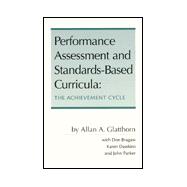|
1 | (18) | |||
|
3 | (8) | |||
|
3 | (2) | |||
|
5 | (1) | |||
|
5 | (2) | |||
|
7 | (4) | |||
|
8 | (3) | |||
|
8 | (1) | |||
|
8 | (1) | |||
|
9 | (1) | |||
|
10 | (1) | |||
|
11 | (1) | |||
|
11 | (4) | |||
|
15 | (1) | |||
|
16 | (3) | |||
|
19 | (20) | |||
|
21 | (2) | |||
|
21 | (1) | |||
|
22 | (1) | |||
|
23 | (1) | |||
|
23 | (6) | |||
|
23 | (2) | |||
|
25 | (2) | |||
|
27 | (1) | |||
|
28 | (1) | |||
|
29 | (4) | |||
|
29 | (1) | |||
|
30 | (1) | |||
|
31 | (2) | |||
|
31 | (1) | |||
|
31 | (1) | |||
|
32 | (1) | |||
|
33 | (2) | |||
|
35 | (2) | |||
|
37 | (2) | |||
|
39 | (22) | |||
|
41 | (1) | |||
|
42 | (2) | |||
|
42 | (1) | |||
|
42 | (2) | |||
|
44 | (6) | |||
|
44 | (3) | |||
|
47 | (1) | |||
|
47 | (3) | |||
|
50 | (8) | |||
|
58 | (1) | |||
|
59 | (2) | |||
|
61 | (12) | |||
|
63 | (1) | |||
|
64 | (2) | |||
|
66 | (1) | |||
|
67 | (1) | |||
|
68 | (1) | |||
|
69 | (1) | |||
|
70 | (1) | |||
|
70 | (1) | |||
|
71 | (2) | |||
|
73 | (12) | |||
|
75 | (4) | |||
|
75 | (3) | |||
|
78 | (1) | |||
|
79 | (4) | |||
|
79 | (1) | |||
|
80 | (1) | |||
|
80 | (1) | |||
|
81 | (1) | |||
|
81 | (1) | |||
|
82 | (1) | |||
|
83 | (2) | |||
|
85 | (20) | |||
|
87 | (2) | |||
|
89 | (2) | |||
|
91 | (5) | |||
|
96 | (1) | |||
|
97 | (3) | |||
|
100 | (2) | |||
|
102 | (1) | |||
|
103 | (2) | |||
|
105 | (18) | |||
|
107 | (7) | |||
|
108 | (1) | |||
|
109 | (1) | |||
|
109 | (1) | |||
|
110 | (1) | |||
|
111 | (1) | |||
|
111 | (1) | |||
|
111 | (1) | |||
|
111 | (1) | |||
|
112 | (1) | |||
|
112 | (2) | |||
|
114 | (4) | |||
|
114 | (1) | |||
|
115 | (2) | |||
|
117 | (1) | |||
|
118 | (2) | |||
|
118 | (1) | |||
|
119 | (1) | |||
|
119 | (1) | |||
|
120 | (3) | |||
|
123 | (34) | |||
|
125 | (8) | |||
|
130 | (3) | |||
|
133 | (1) | |||
|
133 | (16) | |||
|
143 | (6) | |||
|
144 | (1) | |||
|
145 | (4) | |||
|
149 | (3) | |||
|
152 | (3) | |||
|
155 | (2) | |||
|
157 | (32) | |||
|
159 | (7) | |||
|
159 | (1) | |||
|
160 | (1) | |||
|
161 | (2) | |||
|
163 | (1) | |||
|
163 | (1) | |||
|
163 | (1) | |||
|
164 | (2) | |||
|
166 | (8) | |||
|
168 | (2) | |||
|
170 | (2) | |||
|
171 | (1) | |||
|
171 | (1) | |||
|
172 | (1) | |||
|
173 | (1) | |||
|
173 | (1) | |||
|
174 | (11) | |||
|
174 | (6) | |||
|
180 | (5) | |||
|
185 | (4) | |||
|
189 | (13) | |||
|
191 | (5) | |||
|
191 | (1) | |||
|
192 | (1) | |||
|
193 | (1) | |||
|
193 | (1) | |||
|
193 | (2) | |||
|
195 | (1) | |||
|
195 | (1) | |||
|
196 | (3) | |||
|
196 | (1) | |||
|
196 | (2) | |||
|
198 | (1) | |||
|
198 | (1) | |||
|
199 | (1) | |||
|
199 | (1) | |||
|
199 | (1) | |||
|
200 | (2) | |||
| A Concluding Note | 202 | (1) | |||
| References | 202 |









